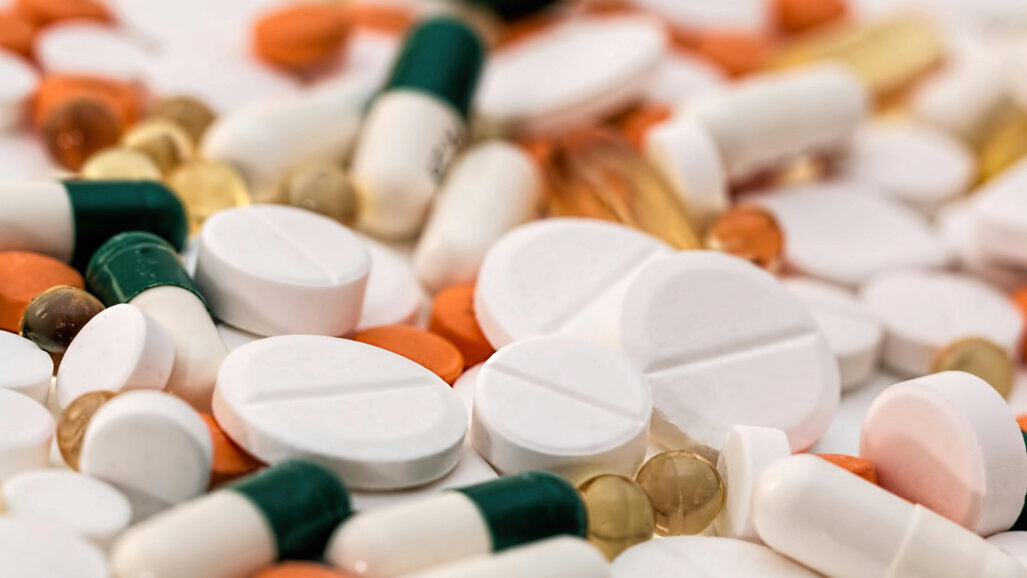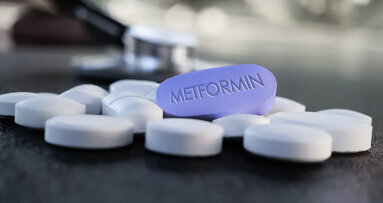BILBAO, Spain: While the systemic health implications of neuropsychiatric disorders are well recognised, their connection to poor oral health—in particular, the direct effects of antipsychotic drugs on the oral cavity—has received comparatively little attention. Filling the gap, a new study from the University of the Basque Country in Bilbao has provided detailed insight into the oral side effects associated with antipsychotic medications. It found that these drugs are frequently associated with disturbances in salivary flow, inflammation and tooth loss and that specific medications are linked to distinctive oral conditions.
Using the European EudraVigilance database, the study examined suspected oral adverse effects reported in association with both typical and atypical antipsychotic medications, identifying 5,663 cases linked to atypical drugs and 787 to older typical agents. Although newer antipsychotics were associated with a higher number of reports overall, older drugs showed stronger associations with certain oral health conditions.
Disturbances in salivary flow emerged as the most frequently reported problem, and xerostomia and hypersalivation were commonly observed. Olanzapine and quetiapine were often linked to xerostomia and tooth loss, and clozapine was strongly associated with hypersalivation, accounting for 1,619 reports—the highest for any single drug. All antipsychotics, except clozapine, were linked to orofacial dyskinesia, and aripiprazole showed the strongest association with both this condition and tongue oedema in adolescents. Other reported oral conditions included dental caries, inflammation of the salivary glands and tooth loss. No sex-based differences in the occurrence of adverse effects were observed.
Although the findings show a clear association between antipsychotic use and oral health conditions, study co-author Dr Nerea Jauregizar from the University of the Basque Country’s Department of Pharmacology stressed that causality cannot be confirmed. This is because patients with mental health disorders often take multiple medications, including antidepressants, hypnotics and drugs for systemic conditions. Poor oral hygiene, substance abuse and limited access to dental care are also more prevalent in this group, compounding the risk of oral disease.
In light of the study findings, the authors emphasised the importance of integrating oral healthcare into the management of patients receiving antipsychotic therapy. They believe that systematic oral health checks and targeted support can improve quality of life, particularly for people with schizophrenia, who often face stigma and barriers to care. Preventive measures should focus on ensuring good oral hygiene and lifestyle habits, monitoring salivary function, addressing changes promptly, and fostering close collaboration between psychiatrists and dental professionals to detect and manage oral complications early.
The study, titled “Oral adverse effects of antipsychotic medications: A case/noncase analysis of EudraVigilance data”, was published online on 21 April 2025 in Oral Diseases, ahead of inclusion in an issue.
Topics:
Tags:
Antimicrobial resistance (AMR) is an increasingly critical global health issue. According to the World Health Organization (WHO), bacterial AMR was directly...
AMMAN, Jordan: The rite of passage through university education into the professional world is one that for many students is fraught with tension. ...
NEWARK, N.J., US: Acute and postoperative dental pain are inevitable, and pain management strategies often include the use of opioids; however, many studies...
SINGAPORE: Some ways of administering medication, such as rectal insertions, can be distressing and unpleasant for patients. Researchers at the National ...
LONDON, UK: Factors such as glucose metabolism, nutrition, oxidative stress and ageing drive periodontal progression. However, current periodontal ...
Live webinar
Tue. 24 February 2026
1:00 pm EST (New York)
Prof. Dr. Markus B. Hürzeler
Live webinar
Tue. 24 February 2026
3:00 pm EST (New York)
Prof. Dr. Marcel A. Wainwright DDS, PhD
Live webinar
Wed. 25 February 2026
11:00 am EST (New York)
Prof. Dr. Daniel Edelhoff
Live webinar
Wed. 25 February 2026
1:00 pm EST (New York)
Live webinar
Wed. 25 February 2026
8:00 pm EST (New York)
Live webinar
Tue. 3 March 2026
11:00 am EST (New York)
Dr. Omar Lugo Cirujano Maxilofacial
Live webinar
Tue. 3 March 2026
8:00 pm EST (New York)
Dr. Vasiliki Maseli DDS, MS, EdM



 Austria / Österreich
Austria / Österreich
 Bosnia and Herzegovina / Босна и Херцеговина
Bosnia and Herzegovina / Босна и Херцеговина
 Bulgaria / България
Bulgaria / България
 Croatia / Hrvatska
Croatia / Hrvatska
 Czech Republic & Slovakia / Česká republika & Slovensko
Czech Republic & Slovakia / Česká republika & Slovensko
 France / France
France / France
 Germany / Deutschland
Germany / Deutschland
 Greece / ΕΛΛΑΔΑ
Greece / ΕΛΛΑΔΑ
 Hungary / Hungary
Hungary / Hungary
 Italy / Italia
Italy / Italia
 Netherlands / Nederland
Netherlands / Nederland
 Nordic / Nordic
Nordic / Nordic
 Poland / Polska
Poland / Polska
 Portugal / Portugal
Portugal / Portugal
 Romania & Moldova / România & Moldova
Romania & Moldova / România & Moldova
 Slovenia / Slovenija
Slovenia / Slovenija
 Serbia & Montenegro / Србија и Црна Гора
Serbia & Montenegro / Србија и Црна Гора
 Spain / España
Spain / España
 Switzerland / Schweiz
Switzerland / Schweiz
 Turkey / Türkiye
Turkey / Türkiye
 UK & Ireland / UK & Ireland
UK & Ireland / UK & Ireland
 Brazil / Brasil
Brazil / Brasil
 Canada / Canada
Canada / Canada
 Latin America / Latinoamérica
Latin America / Latinoamérica
 USA / USA
USA / USA
 China / 中国
China / 中国
 India / भारत गणराज्य
India / भारत गणराज्य
 Pakistan / Pākistān
Pakistan / Pākistān
 Vietnam / Việt Nam
Vietnam / Việt Nam
 ASEAN / ASEAN
ASEAN / ASEAN
 Israel / מְדִינַת יִשְׂרָאֵל
Israel / מְדִינַת יִשְׂרָאֵל
 Algeria, Morocco & Tunisia / الجزائر والمغرب وتونس
Algeria, Morocco & Tunisia / الجزائر والمغرب وتونس
 Middle East / Middle East
Middle East / Middle East







































To post a reply please login or register